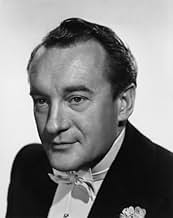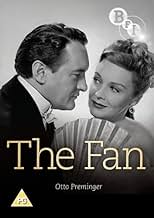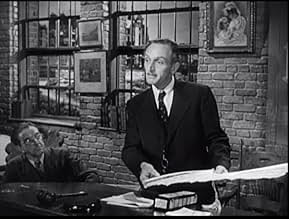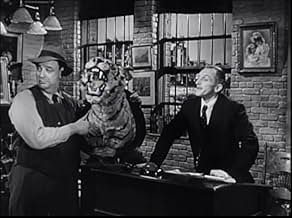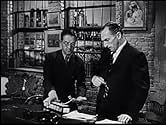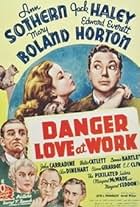Oscar Wilde's play "Lady Windermere's Fan" isn't one of his best pieces of work, and this film, shortened to "The Fan," isn't the best adaptation of it and has the unfortunate position of having been made in between two better-regarded filmed versions of two of Wilde's better-regarded masterpieces, the 1945 "The Picture of Dorian Gray" based on the author's only novel and the 1952 "The Importance of Being Earnest" based on his most celebrated play. The 1945 film particularly is a beautiful piece of art and a near-perfect adaptation, as is Ernst Lubitsch's 1925 silent version of "Lady Windermere's Fan."
Despite the loss of Wilde's words, including the famous epigrams, Lubitsch's film retains the spirit of the playwright's wit visually. It even improves upon it, as the play is rather uneven in its holding up Victorian-age high society for ridicule while ultimately becoming itself rather VIctorian in its moralistic resolution of motherhood. A similar fault befalls this 1949 reworking. Its added present-day framing narrative, where Mrs. Erlynne and Lord Darlington, rather literally, take a walk down memory lane places Wilde's story as a quaint relic, but one filled with nostalgia, of better times before the country was ravished by war. This takes the satirical bite out of the comedy of manners, which, otherwise, the film follows rather faithfully at first--before its resolution falters even more than the original play into melodramatics. The film's latter acts are full of characters either yelling at each other or acting self-righteously, while the musical score is turned up to bombastic levels. Compare this to how Lubitsch's film managed to retain its light tone even while managing a more poignant scene of self-sacrifice.
Like the 1925 version, as well as the 1916 one before it, "The Fan" "opens up" the play, which helps prevent it from appearing stagy, even though it looks like a B-picture in comparison to the 1945 prestige production "The Picture of Dorian Gray" or to Lubitsch's version, with the director's characteristic insistence upon grand sets, including absurdly gigantic doors. I do like one shot in "The Fan," in particular, though, which happens when the narration changes to Lord Darlington's memory: the camera moves from the present to the past as seen through a window. Besides the flashback structure, the remembered past begins before where the play started (as do the other film versions), and there are other added scenes of Mrs. Erlynne's interactions with the male characters and a fencing match, which serves to stage her scandalous effect on society. Much of this is very similar to the 1925 film despite being slightly altered. The fencing match, for instance, replaces a similarly-purposed scene at the horse track in the 1925 version, which itself was a bit of a reworking of a dog-show scene in the 1916 one. I'm certainly not opposed to "The Fan" adapting earlier filmed versions as well as the play, but I don't think it does a very good job of it. The horse-track scene is impressively constructed in Lubitsch's film, with its series of looks and mocked gossiping underpinning a narrative based on dramatic irony and misconceptions. The fencing scene here, by contrast, is quite dull.
The acting is OK, I suppose, but the problem is that Wilde's characters were never much developed; originally, they come off as mouthpieces for the author's aphorisms, as variously stated by several different persons. Besides eliminating Wilde's words, the 1925 version helps to alleviate this with Irene Rich's Mrs. Erlynne, who follows in the tradition of the cinematic vamp, or flapper, type, as the play was updated to the then-modern day. Not so here. Even George Sanders, who is my favorite screen version of Lord Henry from Wilde's novel, cannot save Lord Darlington, who always seems to me to be quite a bore of a cad. Martina Hunt is rather surprisingly good in the more minor role of the Duchess, though, as the film gets some amusement out of her relationship with her obedient daughter, Agatha.

